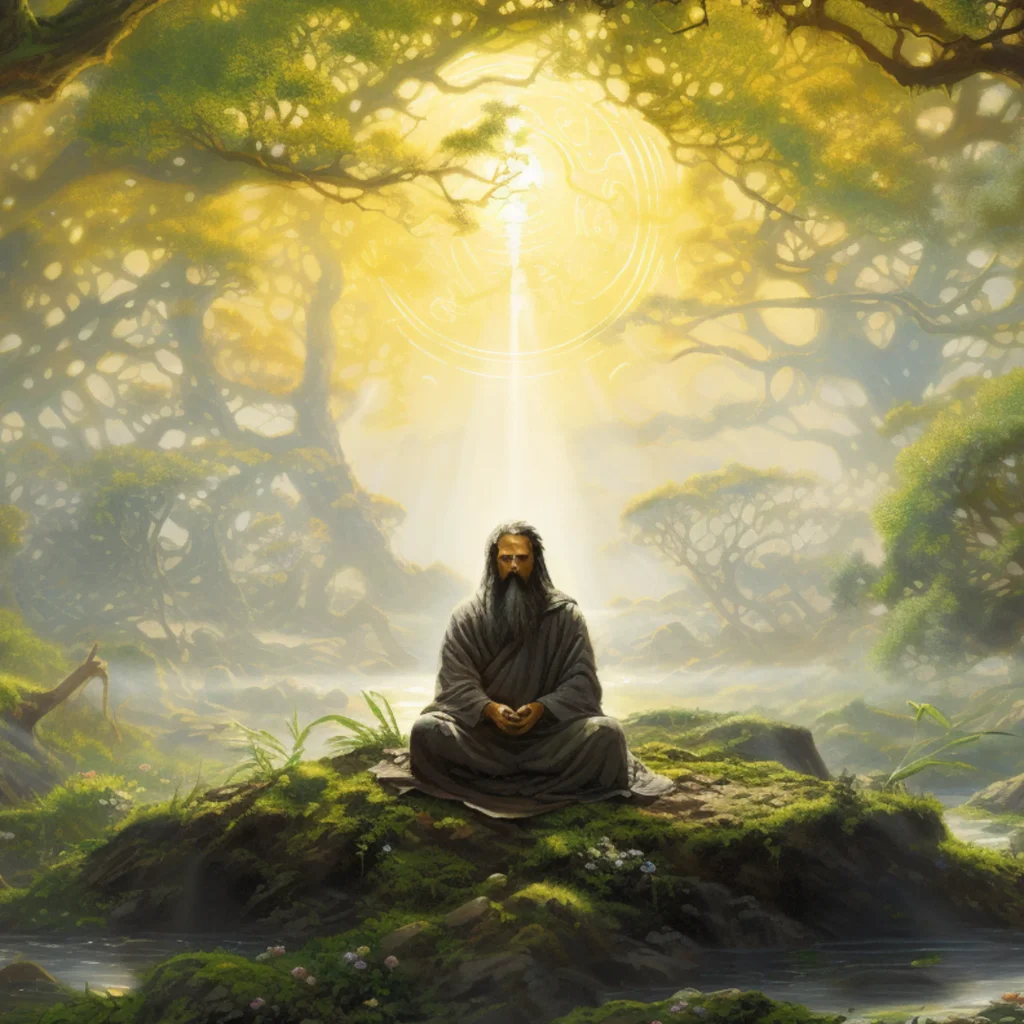Prophets across religions have long recognized the value of solitude. Solitude can help a prophet to connect with the divine. When we are alone, we are less distracted by the noise and distractions of the world, and we can more easily focus on our inner selves and on our relationship with God. This can be a powerful and transformative experience, and it can help a prophet to gain the insights and inspiration they need to fulfill their calling.
In the Jewish tradition, Moses is said to have spent 40 days and 40 nights on Mount Sinai, where he received the Ten Commandments from God. In the Christian tradition, Jesus is said to have spent many nights praying and meditating in the wilderness. Prophet Muhammad is said to have received the first revelation of the Quran from the angel Gabriel while he was meditating in a cave. Buddha is said to have spent six years in solitary meditation before he achieved enlightenment. In the Hindu tradition, Krishna is said to have spent many years in solitude in the forest to contemplate the meaning of life and to develop his spiritual powers.
Today, these stories of solitude serve as beacons of wisdom. Just as prophets transformed their faiths through solitary communion, we too can enrich our lives, nourish our spirits, and shape our destinies by embracing solitude from time to time.
Christianity:
“We live, in fact, in a world starved for solitude, silence, and private: and therefore starved for meditation and true friendship.”
– C.S. Lewis, writer and Christian theologian
Judaism:
“Moses alone may come near the Lord. The others should not come near and should not come up with him.”
— The Hebrew Bible (Exodus 24:1-2), Jewish scripture
Islam:
“He used to go in seclusion in the cave of Hira where he used to worship (Allah alone) continuously for many days […] till suddenly the Truth descended upon him while he was in the cave of Hira.”
— Sahih al-Bukhari, record of the life of The Prophet Muhammad
Buddhism:
“This is an attachment; here there is little happiness, and little satisfaction; here there is very much misery; this is a hook. Knowing this, a thoughtful man should wander solitary as a rhinoceros horn.”
— Sutta Nipata, Buddhist scripture

Hinduism:
“When you meditate, go into the solitude of a forest, or a quiet corner, and enter into the chamber of your heart.”
— Sri Ramakrishna, Hindu saint
Baha’i:
“We betook Ourselves to the wilderness, and there, separated and alone, led for two years a life of complete solitude […] Alone, We communed with Our spirit, oblivious of the world and all that is therein.”
— Bahá’u’lláh, Baha’i prophet
Daoism:
“Wei Mou had command of ten thousand chariots, so for him to retire and live alone in the caves and cliffs was much more difficult than for a scholar. He may not have had the Tao, but we can say he had the intention.”
— The Book of Chuang Tzu, Daoist text
Philosophy:
“All of humanity’s problems stem from man’s inability to sit quietly in a room alone.”
— Blaise Pascal, French philosopher and mathematician


